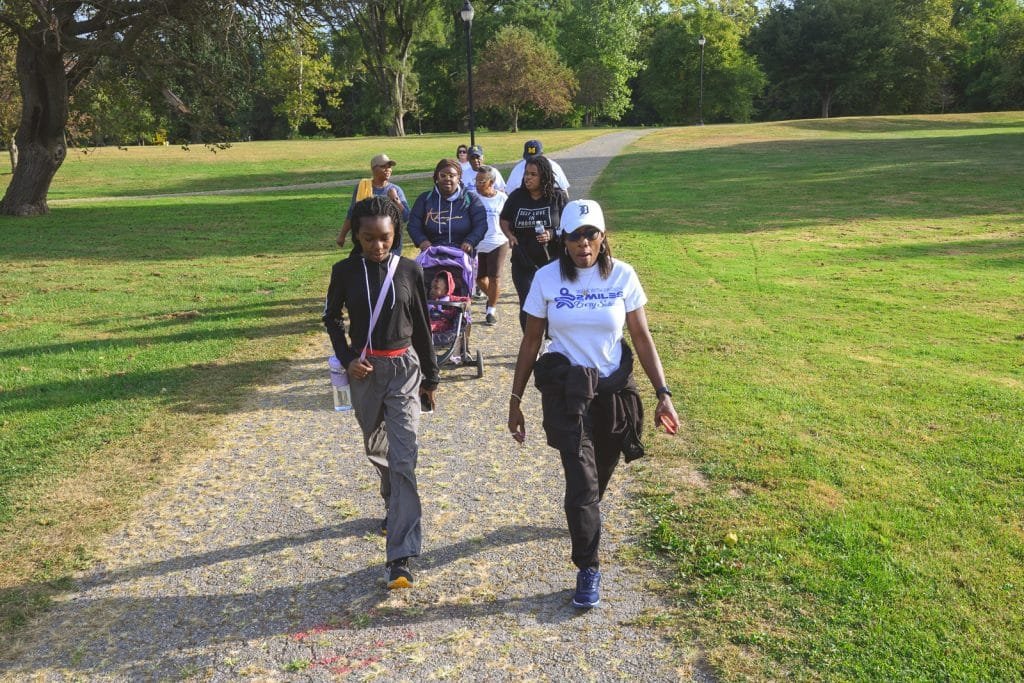
- While it’s not uncommon for people to experience problems with thinking and remembering with aging, moderate to severe cognitive decline is not a common aging experience.
- While not all cases of mild cognitive impairment lead to dementia, about 10-20% of cases do.
- For this reason, clinicians emphasize the importance of following a healthy lifestyle to help keep one’s brain healthy as one ages.
- Among these interventions are following the MIND diet, a moderate to high-intensity exercise program, and engaging socially.
As we age, we experience a number of changes in our bodies and how they operate, including the brain. It’s not uncommon for people to have problems remembering names or having a slower time making decisions as we get older, normally referred to as mild cognitive impairment (MCI). However, it is not common for these types of cognitive issues to have a negative impact on a person’s overall daily life.
If a person’s thinking and memory issues start to impact their daily life, this can be signs of moderate to severe cognitive decline, or dementia.
Now, a new commentary study recently published in The American Journal of Medicine provides further evidence of how certain lifestyle factors may impact a person’s risk for cognitive decline.
The study also urges the medical community and policymakers to take action to support lifestyle-based interventions to help prevent cognitive decline around the world.
In the POINTER study, researchers recruited 2,111 older adults, with an average age of 68, at risk for cognitive decline and dementia. Participants followed either structured or self-guided lifestyle interventions, which included the MIND diet, a moderate to high-intensity exercise program, social engagement, and heart health monitoring.
At the study’s conclusion, researchers found while both styles of lifestyle interventions were beneficial in helping to lower cognitive decline risk, those in the structured program had greater improvement in their global cognition compared to the self-guided group.
The findings of the POINTER trial, researchers comment in their commentary, are consistent with the findings of the FINGER trial in 2015, where a “multi-domain intervention” strategy including diet, exercise, cognitive training, and vascular risk monitoring, offered greater improvements in their cognition than the group who was just given general health advice.
“POINTER and FINGER are the first large-scale randomized trials to test multi-domain lifestyle interventions — like exercise, diet, cognitive training, and social engagement,” Charles H. Hennekens, MD, FACPM, FACC, the First Sir Richard Doll Professor of Medicine and Preventive Medicine in the Departments of Medicine and Populations Health, interim chair of Population Health, and senior academic advisor for the Schmidt College of Medicine at Florida Atlantic University, and senior author of this study, told Medical News Today.
“Each provides reliable evidence of benefit. These trials illustrate that targeting several modifiable risk factors simultaneously can produce measurable improvements in cognitive outcomes. The fact that these large-scale, randomized results were consistent in two different populations strengthens the belief that lifestyle modifications are causal in reducing cognitive decline.”
— Charles H. Hennekens, MD, FACPM, FACC
MNT spoke with Manisha Parulekar, MD, FACP, AGSF, CMD, director of the Division of Geriatrics at Hackensack University Medical Center and co-director of the Center for Memory Loss and Brain Health at Hackensack University Medical Center in New Jersey, for her thoughts on this commentary.
“The summary suggests this is a logical extension of existing knowledge. The text explicitly states that lifestyle factors have long been ‘postulated’ to influence cognitive decline. More importantly, it points out that the very same ‘therapeutic lifestyle changes’ discussed — such as improved diet, physical activity, and smoking cessation — already have ‘proven benefit’ in preventing and managing other major chronic illnesses like cardiovascular disease and colorectal cancer.”
— Manisha Parulekar, MD, FACP, AGSF, CMD
“Given the known biological mechanisms, such as how physical activity improves brain perfusion and how certain diets reduce oxidative stress, it is a well-supported hypothesis that these interventions would also benefit brain health,” she added.
MNT also asked Raphael Wald, PsyD, a neuropsychologist with Marcus Neuroscience Institute, part of Baptist Health South Florida, for his reaction to this recently published commentary.
“This study highlights the importance of healthy choices in reducing the risk of cognitive decline,” Wald commented. “This is something that has long been understood, though this study helps underline the magnitude of the effect of diet and exercise on brain health as we age.”
Based on the evidence presented in their commentary, the researchers ask clinicians, public health professionals, and policymakers to implement coordinated efforts and support interventions for known lifestyle-based risk factors for cognitive decline.
“Changing individual behavior is difficult, especially when people face structural barriers such as limited access to nutritious food, safe exercise environments, or affordable health care,” Hennekens said. “That’s why a siloed approach — where clinicians give advice, but communities lack resources to act on it — is suboptimal.”
“We’re calling for a coordinated response that brings together clinical practice, public health initiatives, and policymaking to create a supportive ecosystem,” he continued. “This includes things like city planning that promotes walkability, insurance incentives for preventive care, and public education campaigns that normalize healthy aging. Only through such coordinated efforts can we create lasting change and reduce disparities in who benefits from these lifestyle-based interventions.”
Parulekar told MNT that this study highlights the burden of social determinants of health on the cognitive health of our population.
“Because the risk factors are embedded in daily life — diet, activity, social connection — a multi-level approach is essential. If clinicians are able to counsel individual patients and provide referral to community-wide education and support programs launched by the public health professionals, policymakers can create environments that make healthy choices easier.”
— Manisha Parulekar, MD, FACP, AGSF, CMD
“Just counseling and education will not be effective if there is limited access to healthy interventions,” Parulekar added. “Coordinated efforts are needed to translate research findings into ‘major clinical and public health implications’ that can meaningfully reduce the burden of this disease.”
Moving forward from this commentary, Wald said the hope is that this research motivates people to take care of their overall vascular health.
“A good next step would be to evaluate how to implement these lifestyle changes on a larger scale so that the public as a whole can benefit,” he continued. “This would likely help reduce the burden of dementia in society.”
Hennekens said that to truly understand how lifestyle interventions protect the brain, we need more mechanistic studies that bridge the gap between behavioral outcomes and biological changes.
“This means, for example, investing in research that integrates longitudinal lifestyle data with biomarkers such as inflammatory cytokines, markers of vascular health, brain-derived neurotrophic factor (BDNF), and others that may influence brain resilience,” he detailed. “Advanced neuroimaging and genetic profiling should also be part of future studies to detect changes at the cellular and systems level. Ideally, we need multidisciplinary collaborations that bring together neuroscientists, epidemiologists, and clinicians to design studies that can track these changes over time and across populations.”
And Parulekar commented that the clear next step for this research is to move from postulation to definitive proof.
“The commentary hopes to achieve this by laying out the strong scientific rationale to encourage and justify future studies. Specifically, the next steps should include conducting rigorous trials and research that explores whether combining multiple interventions — such as diet, exercise, and smoking cessation simultaneously — produces a greater, synergistic benefit than any single intervention alone.”
— Manisha Parulekar, MD, FACP, AGSF, CMD
“This commentary aims to serve as a call to action, providing the foundational evidence for the need for coordinated efforts to support lifestyle interventions as a powerful tool against cognitive decline,” Parulekar added.







